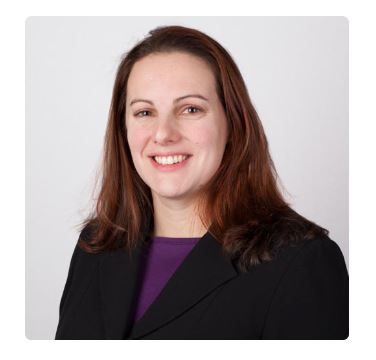
What did you study at Yale (including major and degree)? When did you graduate? What is your current profession/job?
I studied Geology & Geophysics with a concentration in Atmosphere, Ocean, and Climate Dynamics. I received my M.Phil. in 2009 and my Ph.D. in 2012.
I am currently a Senior Scientist and Manager in the Research department at AIR Worldwide in Boston. AIR is a catastrophe modeling firm, meaning we develop probabilistic models to assess future loss potential from catastrophic events. I work in the Agriculture Modeling Group and am responsible for developing probabilistic models assessing the risk of weather damage to crops. I am the creator and model manager of AIR’s Crop Hail Models for the United States and Canada which assess the risk of loss due to crop damage from hail storms. Crop insurance companies and reinsurance companies use these models to understand the potential losses to their insurance portfolios.
What do you like most about your current role? What do you find most challenging and/ or rewarding?
The other members of my group have a variety of educational backgrounds from atmospheric science to agricultural economics, plant physiology, environmental engineering, and astronomy. Everyone brings a unique and interesting perspective to our projects and I find it very interesting working with people with such varied backgrounds.
A major challenge that we face when developing models for regions outside of the United States is data availability and data quality. Assessing the risk of crop damage from weather requires weather data as well as crop damage or yield data for model validation. Without sufficient, reliable data it can be very difficult to build and validate a model.
The most rewarding part of my job is seeing clients use the models I build and knowing that my work is aiding their business practices.
How did your time at Yale shape your career trajectory?
The biggest impact that my time at Yale had on my career was the network of graduate students I met and worked with, both in the Geology department and across other departments. While I had identified an interest in working in risk assessment, I learned of specific catastrophe modeling firms from fellow graduate students and was pointed to my current position by a prior graduate of the Geology department who was working at a sister company at the time and was aware of job openings at AIR.
What are the main skills that you acquired as a PhD student which help make you successful in your current career?
Data analysis and independently learning new programming languages are the skills I learned during my PhD which I use the most in my career. I work with a variety of datasets that need to be manipulated in different ways for different projects based on how the data needs to be used. I have also needed to be very flexible in using a variety of programming languages when faced with legacy codes that I need to understand and continue to use. The ability to independently learn enough about a new programming language to interpret and work with existing codes has allowed me to work more efficiently on aspects of projects than would otherwise be possible.
Did you acquire any professional experience related to your line of work while in graduate school?
I did not have any professional experience while in graduate school, but I did hold internship positions while working toward my undergraduate degree that provided a view of different career opportunities after graduate school. One internship I held was with a sister company of AIR and I have worked closely with some employees from that organization since joining AIR.
What advice would you offer PhDs who are interested in your line of work?
Research experience gained during graduate school is very helpful, but general data science training can also offer experience in additional skills and techniques that you may not learn and use during your PhD. Be open to outside learning to acquire skills outside of those used in your specific research project that are likely to be applicable in your future career.
What is a sentence that you would most like to say to our current Yale students and postdocs?
Consider research-related careers outside of academia during your job search, and be sure to network outside of academic settings to gain a full understanding of non-academic opportunities since faculty may not be aware of these opportunities and therefore may not be able to effectively coach students and postdocs in non-academic job searches.
